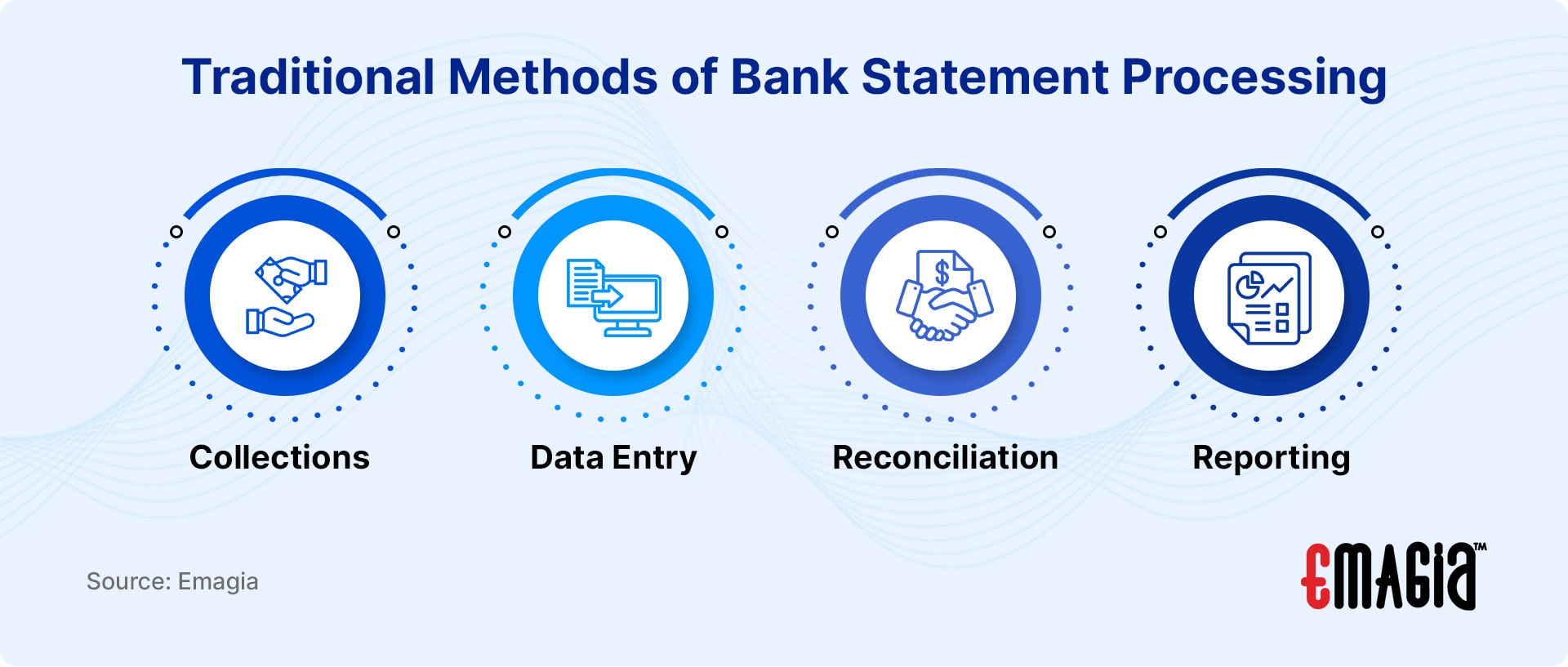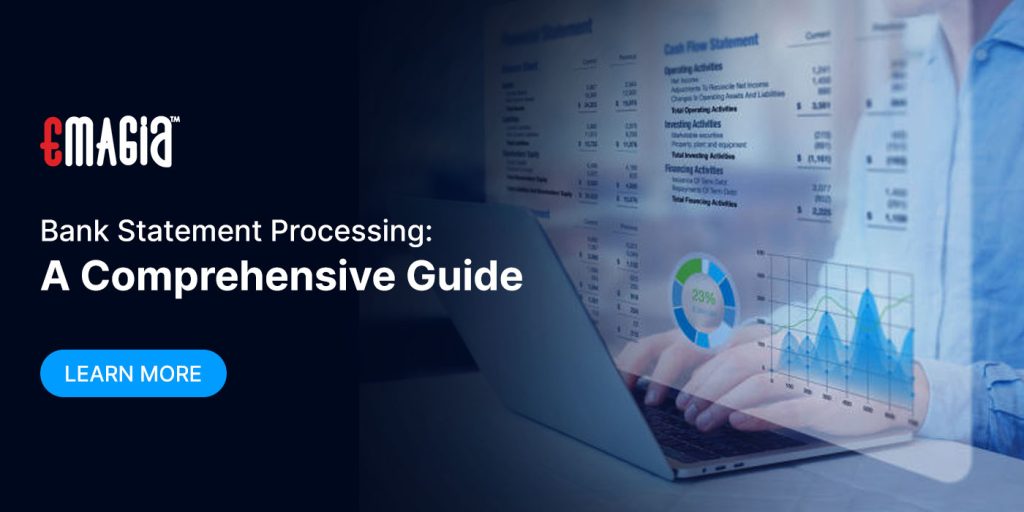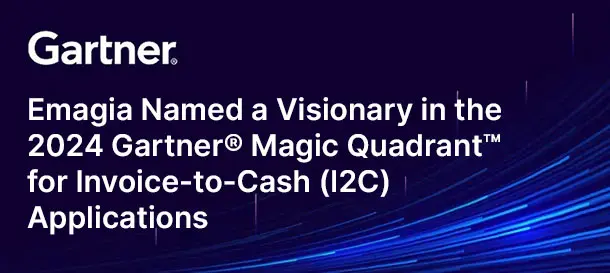Bank statement processing is a critical component of financial management, involving the systematic handling of bank statements to ensure accurate reconciliation and financial reporting. This comprehensive guide delves into the intricacies of bank statement processing, highlighting its significance, methodologies, benefits, challenges, and the role of advanced technologies like Emagia’s GiaDocs AI in enhancing the process.
Understanding Bank Statement Processing
Bank statement processing entails the collection, verification, and reconciliation of financial transactions recorded in bank statements with an organization’s internal financial records. This process is essential for maintaining accurate financial statements, ensuring compliance, and facilitating effective cash flow management.
The Importance of Bank Statement Processing
- Financial Accuracy: Ensures that all transactions are accurately recorded, preventing discrepancies in financial reporting.
- Regulatory Compliance: Assists in adhering to financial regulations and standards, reducing the risk of non-compliance penalties.
- Operational Efficiency: Streamlines financial operations, allowing for timely decision-making and resource allocation.
Traditional Methods of Bank Statement Processing
Historically, bank statement processing has been a manual task, involving the following steps:
- Collection: Gathering physical or electronic copies of bank statements.
- Data Entry: Manually inputting transaction details into accounting systems.
- Reconciliation: Comparing internal records with bank statements to identify discrepancies.
- Reporting: Generating financial reports based on reconciled data.

While effective, these methods are time-consuming and prone to human error.
Challenges in Traditional Bank Statement Processing
- Time-Consuming: Manual processes require significant time and resources.
- Prone to Errors: High risk of inaccuracies due to manual data entry.
- Limited Scalability: Difficult to manage large volumes of transactions efficiently.
The Role of Automation in Bank Statement Processing
Advancements in technology have introduced automation to bank statement processing, offering:
- Enhanced Efficiency: Automated systems can process large volumes of data swiftly.
- Improved Accuracy: Reduces human errors associated with manual data entry.
- Cost Savings: Decreases the need for extensive manual labor, leading to operational cost reductions.
How Emagia’s GiaDocs AI Enhances Bank Statement Processing
Emagia’s GiaDocs AI leverages artificial intelligence to revolutionize bank statement processing:
- Advanced Data Extraction: Utilizes AI to accurately extract data from various bank statement formats.
- Seamless Integration: Easily integrates with existing financial systems, ensuring smooth data flow.
- Real-Time Processing: Enables immediate processing of bank statements, facilitating timely financial reporting.
- Enhanced Security: Employs robust security measures to protect sensitive financial data.
Benefits of Implementing GiaDocs AI
- Increased Productivity: Automates routine tasks, allowing staff to focus on strategic activities.
- Scalability: Easily handles growing volumes of financial data without compromising performance.
- Regulatory Compliance: Assists in maintaining compliance with financial regulations through accurate data processing.
Best Practices for Effective Bank Statement Processing
- Regular Reconciliation: Consistently reconcile bank statements to maintain financial accuracy.
- Utilize Automation Tools: Implement advanced tools like GiaDocs AI to streamline the process.
- Continuous Monitoring: Regularly monitor the processing system to identify and address issues promptly.
FAQs
Here are some frequently asked questions about bank statement processing:
What is bank statement processing?
Bank statement processing involves the collection, verification, and reconciliation of financial transactions recorded in bank statements with an organization’s internal financial records.
Why is bank statement processing important?
It ensures financial accuracy, regulatory compliance, and operational efficiency by maintaining accurate financial records and facilitating timely decision-making.
What are the challenges in traditional bank statement processing?
Traditional methods are time-consuming, prone to human errors, and have limited scalability, making it difficult to manage large volumes of transactions efficiently.
How does automation improve bank statement processing?
Automation enhances efficiency, improves accuracy, and reduces operational costs by swiftly processing large volumes of data and minimizing human errors.
What is Emagia’s GiaDocs AI?
GiaDocs AI is an advanced artificial intelligence solution that automates bank statement processing, offering features like accurate data extraction, seamless integration, real-time processing, and enhanced security.
What are the benefits of implementing GiaDocs AI?
Implementing GiaDocs AI increases productivity, scalability, and regulatory compliance by automating routine tasks, handling growing data volumes, and ensuring accurate data processing.
How can I implement GiaDocs AI in my organization?
To implement GiaDocs AI, contact Emagia for a consultation to assess your organization’s needs and integrate the solution into your existing financial systems.
In conclusion, adopting automated solutions like Emagia’s GiaDocs AI for bank statement processing significantly enhances financial management by improving accuracy, efficiency, and compliance. Embracing such technologies is a strategic move towards modernizing financial operations and achieving organizational success.




